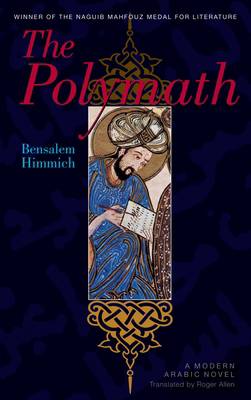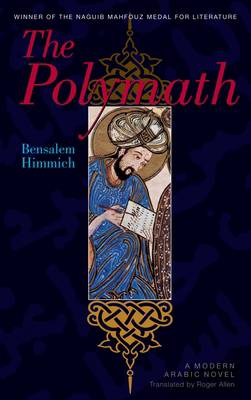
- Afhalen na 1 uur in een winkel met voorraad
- Gratis thuislevering in België vanaf € 30
- Ruim aanbod met 7 miljoen producten
- Afhalen na 1 uur in een winkel met voorraad
- Gratis thuislevering in België vanaf € 30
- Ruim aanbod met 7 miljoen producten
Zoeken
Omschrijving
WINNER OF THE NAGUIB MAHFOUZ MEDAL FOR LITERATUREWINNER OF THE GRAND ATLAS AWARD
This magnificent novel deals with the stormy life of the outstanding Arab philosopher Ibn Khaldun, using historical sources, and particularly material from the writer's works, to construct the personal and intellectual universe of a fourteenth-century genius. The dominant concern of the novel--the uneasy relationship between intellectuals and political power, between scholars and authority--addresses our times through the transparent veil of history. In the first part of the novel, we are introduced to the mind of Ibn Khaldun as he dictates his work to his scribe and interlocutor. The second part delves into the heart of the man and his retrieval of a measure of happiness and affection in a remarriage, after the drowning of his first wife and their children at sea. Finally we see Ibn Khaldun as a man of action, trying to minimize the imminent horrors of invading armies and averting the sack of Damascus by Tamerlane, only to spend his last years lonely and destitute, having been fired from his post as qadi, his wife having gone to Morocco, and his attempts at saving the political situation having come to nil.
This magnificent novel deals with the stormy life of the outstanding Arab philosopher Ibn Khaldun, using historical sources, and particularly material from the writer's works, to construct the personal and intellectual universe of a fourteenth-century genius. The dominant concern of the novel--the uneasy relationship between intellectuals and political power, between scholars and authority--addresses our times through the transparent veil of history. In the first part of the novel, we are introduced to the mind of Ibn Khaldun as he dictates his work to his scribe and interlocutor. The second part delves into the heart of the man and his retrieval of a measure of happiness and affection in a remarriage, after the drowning of his first wife and their children at sea. Finally we see Ibn Khaldun as a man of action, trying to minimize the imminent horrors of invading armies and averting the sack of Damascus by Tamerlane, only to spend his last years lonely and destitute, having been fired from his post as qadi, his wife having gone to Morocco, and his attempts at saving the political situation having come to nil.
Specificaties
Betrokkenen
- Auteur(s):
- Vertaler(s):
- Uitgeverij:
Inhoud
- Aantal bladzijden:
- 256
- Taal:
- Engels
- Reeks:
Eigenschappen
- Productcode (EAN):
- 9789774162527
- Verschijningsdatum:
- 1/04/2009
- Uitvoering:
- Paperback
- Formaat:
- Trade paperback (VS)
- Afmetingen:
- 124 mm x 198 mm
- Gewicht:
- 340 g

Alleen bij Standaard Boekhandel
+ 27 punten op je klantenkaart van Standaard Boekhandel
Beoordelingen
We publiceren alleen reviews die voldoen aan de voorwaarden voor reviews. Bekijk onze voorwaarden voor reviews.











